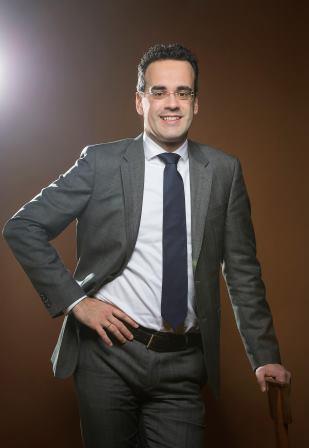Mladen Popović new Dean of Faculty of Theology and Religious Studies
The Board of the University of Groningen has appointed Prof. Mladen Popović as Dean of the Faculty of Theology and Religious Studies for a period of four years as of 1 September 2017.

Opening of the academic year
He will perform his first official task as Dean during the opening of the academic year of the Faculty of Theology and Religious Studies in the Doopsgezinde Kerk in Groningen on Wednesday 6 September. Prince Jaime de Bourbon de Parme, ambassador of the Kingdom of the Netherlands to the Holy See (Vatican) will give a guest lecture during this joint opening of the academic year for the Faculty of Theology and Religious Studies and the Protestant Theological University (PThU).
Expertise
Prof. Mladen Popović is Professor of Old Testament and Early Judaism, with a special focus on Qumran and the Dead Sea Scrolls. He is also director of the Qumran Institute at the UG, an institute that plays a leading role in studying the Dead Sea Scrolls both in the Netherlands and abroad. Popović studied at the University of Groningen, KU Leuven and Yale University. He conducted archaeological research in Megiddo and Jerusalem. Popović is the leading expert in the Netherlands on the Dead Sea Scrolls and was guest curator of the exhibition about the Dead Sea Scrolls in the Drents Museum (2013/2014).
Pioneering research
In 2008, Mladen Popović was awarded the Keetje Hodshon Prize by the Royal Holland Society of Sciences and Humanities (KHMW) for a dissertation that earned him a distinction entitled ‘Reading the Human Body: Physiognomics and Astrology in the Dead Sea Scrolls and Hellenistic-Early Roman Period Judaism’. In late 2009, the Netherlands Organisation for Scientific Research (NWO) awarded him a Veni grant, intended for researchers who have recently gained a PhD and have significant and original talent for innovative research. At the end of 2014, Popović acquired an ERC (European Research Council) Starting Grant of € 1.5 million from the European Commission to continue his pioneering research into the Dead Sea Scrolls. Popović now wants to use new techniques such as artificial intelligence and carbon dating in combination with palaeography (the study of handwriting) to discover who wrote these manuscripts. In 2016, he and Prof. Eibert Tigchelaar (KU Leuven) were awarded a major grant of € 0.5 million by the NWO/FWO (Netherlands Organisation for Scientific Research/Research Foundation Flanders) for a complementary project of the ERC research programme.
Dean
In his new job as Dean, Mladen Popović will take on even more tasks. How does Popović intend to combine these new tasks with his existing work? ‘I shall spend half of my time working as Dean, and the other half on ERC research. Unfortunately, my current contractual obligations with the ERC will prevent me from taking on teaching duties.’ Although he is disappointed about this, his overall enthusiasm at becoming Dean still prevails: ‘This is a wonderful Faculty, with marvellous lecturers, researchers and students. The theme religion and culture is not only interesting, it is also extremely important in a world where religion has “returned from never having gone away”. Take migration and globalization, for example. It’s a great honour to be made Dean of a Faculty like this. I am very much looking forward to it.’
More news
-
06 January 2026
Connecting with history
